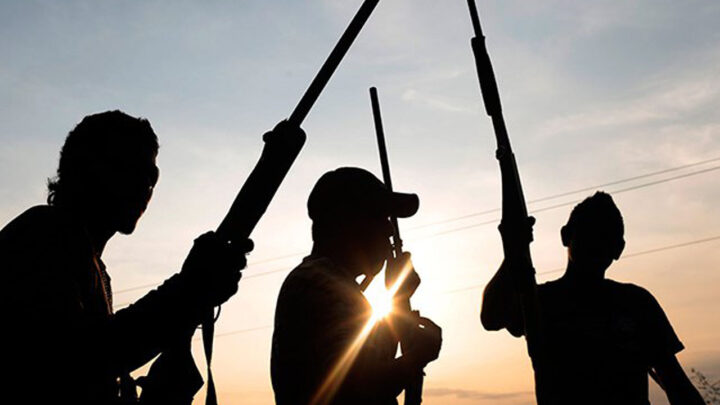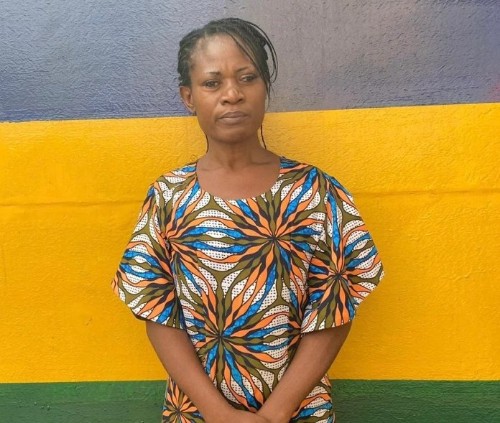A federal high court in Abuja has summoned Olubunmi Tunji-Ojo, the minister of interior, and Lateef Fagbemi, the attorney-general of the federation (AGF), over issues related to the expatriate employment levy (EEL).
The ministers are required to appear before the court on January 16 to justify why the proposed expatriates taxation regime should not be halted.
Inyang Ekwo, the presiding judge, issued this ruling on Thursday following a motion ex parte presented by Patrick Peter, counsel representing the plaintiff.
Ekwo directed that the minister and the AGF be served with the motion within three days of the order.
The suit, marked FHC/ABJ/CD/1780/2024, was filed by the Incorporated Trustees of New Kosol Welfare Initiative.
The group seeks an order of interim injunction to prevent the defendants from implementing the new expatriates’ taxation regime in Nigeria until the motion is heard and decided.
In the affidavit attached to the suit, Raphael Ezeh, programme implementation coordinator of the group, stated that the EEL taxation policy was announced by the federal government on Tuesday, February 27, 2024.
“According to KPMG and other online information analysts and dissemination agencies, the federal government intends to compel all companies and organisations who engage the services of foreign expatriates to pay tax E.E.L. as follows: For every expatriate on the level of a director — Fifteen Thousand United States Dollars ($15,000.00) equivalent to Twenty-Three Million Naira, by the current exchange rates (NW23,000,000.00) per annum,” he said.
“For every expatriate on a non-director level – Ten Thousand United States Dollars ($10,000.00) equivalent to Sixteen Million Naira, by the current exchange rates (N16,000,000.00) per annum.”
Ezeh stated that the federal government has also proposed additional regulations, including penalties and sanctions for non-compliance with the proposed taxation regime.
According to him, inaccurate or incomplete reporting will result in five years imprisonment and/or N1 million.
He explained that failure by a corporate entity to file EEL within 30 days will attract a penalty of N3 million.
Similarly, failure to register an employee within 30 days or the submission of false information will also incur a penalty of N3 million.
Ezeh added that failure to renew the EEL before its expiry date will attract a penalty of N3 million.
“The proposed taxation regime is totally an anti-people policy because of its radical effect on different aspects of the Nigerian economy, and it works like a choke-hold against the economic growth of the nation,” he said.
He emphasized that taxation is a sensitive issue, requiring collaboration between the executive and legislative arms of government under the 1999 Constitution (as amended).
He noted that, under section 59 of the constitution, the executive alone lacks the authority to impose taxes on corporate bodies and citizens.
Ezeh added that the current tax regime is “significantly more favourable to expatriates” compared to the proposed system.
“If the defendants are not restrained by an order of this honourable court, they will commence full implementation of the said programme, thereby threatening the nation’s economic sustainability,” he said.
The matter was adjourned to January 16 for the defendants to appear before the court and show cause.
The federal ministry of interior had suspended the implementation of the EEL in 2024 to allow for further consultations with the Nigerian Association of Chambers of Commerce, Industry, Mines, and Agriculture (NACCIMA) and other stakeholders.

 BIG STORY2 days ago
BIG STORY2 days ago
 BIG STORY5 days ago
BIG STORY5 days ago
 BIG STORY4 days ago
BIG STORY4 days ago
 BIG STORY14 hours ago
BIG STORY14 hours ago
 BIG STORY4 days ago
BIG STORY4 days ago
 BIG STORY3 days ago
BIG STORY3 days ago
 BIG STORY3 days ago
BIG STORY3 days ago
 BIG STORY4 days ago
BIG STORY4 days ago









